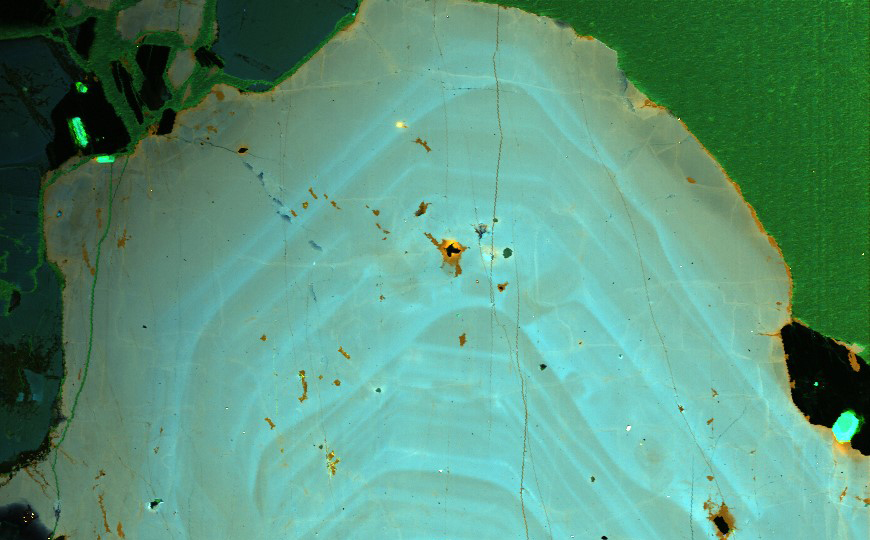-
Yosemite Granite Tells New Story About Earth's Geologic History
July 11, 2018 / Posted by: Miki Huynh
Quartz analysis image. Source: Michael Ackerson / Carnegia ScienceGranite is a record keeper of the history of continental movement, volcanic activity, and thermal properties of Earth’s upper crust, going back as far as 4.4 billion years ago.
Michael Ackerson and his team have analyzed granite rock samples found in Yosemite National Park, and their study reveals evidence of mineral crystallization occurring at a much lower temperature than previously thought possible—around 100-200 degrees cooler than currently assumed. This discovery has the potential to change the larger picture in our understanding of the geology of Earth’s past, including crust and magma formation, and the link between volcanoes, ores deposits, and granite.
The paper, “Low-temperature crystallization of granites and the implications for crustal magmatism,” is funded in part by the NAI and published in Nature.
A full press release is available through Carnegie Science.
Source: [Nature (via Carnegie Science)]
- The NASA Astrobiology Institute Concludes Its 20-year Tenure
- Global Geomorphologic Map of Titan
- Molecular Cousins Discovered on Titan
- Interdisciplinary Consortia for Astrobiology Research (ICAR)
- The NASA Astrobiology Science Forum Talks Now on YouTube
- The NASA Astrobiology Science Forum: The Origin, Evolution, Distribution and Future of Astrobiology
- Alternative Earths
- Drilling for Rock-Powered Life
- Imagining a Living Universe
- Workshops Without Walls: Astrovirology